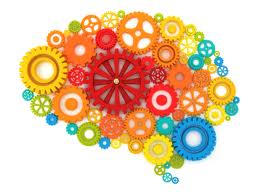Services
Pediatric neuropsychology is a professional specialty concerned with learning and behavior in relationship to a child’s brain.
 A pediatric neuropsychologist is a licensed psychologist with expertise in how learning and behavior are associated with the development of brain structures and systems.
A pediatric neuropsychologist is a licensed psychologist with expertise in how learning and behavior are associated with the development of brain structures and systems.
Please see links above for more information about services we provided.
When is Neuropsychological Evaluation Appropriate?
A neuropsychological evaluation is appropriate whenever:

- There are concerns about a child’s development, academic, social/emotional, daily living, or behavioral functioning
- A child has a medical history with known neurocognitive consequences, such as prenatal complications, prematurity, concussion/head injury, seizures, cancer, hypoxia, and other medical/genetic disorders
- A child has a psychiatric disorder that may be contributing to disruptions in academic, behavioral, social-emotional, adaptive, and vocational functioning
What’s Typically Involved with a Neuropsychological Evaluation?
A neuropsychological evaluation typically involves multiple appointments, including:

- An initial intake with parents/caregivers to obtain information about your child’s current functionoing and relevant history
- Interviews with your child and possibly their therapists and teachers
- One or more testing sessions
- Feedback with parents/caregivers and generation of a comprehensive report regarding test results and recommdations
In addition, it is usually helpful to have additional follow-up consultation with your child’s school and/or therapists regarding how the results can be incorporated into their programs to help maximize their success and independence.
What is the Goal of a Neuropsychological Evaluation?

The goal of a neuropsychological evaluation is to provide detailed information regarding your child’s cognitive abilities, behavioral, social-emotional, and psychological functioning. This can be helpful in understanding more about your child so that specific and directed interventions can be developed and implemented in order to optimize your child’s development and functional independence.
Skill areas that are often assessed include:
- Intellectual and adaptive functioning
- Academic and pre-academic functioning
- Attention and processing skills
- Sensorimotor skills
- Fine and gross motor skills
- Receptive and expressive language
- Visual-perceptual and visual-motor skills
- New learning and memory
- Organization, planning, and problem-solving
- Behavior
- Social skills
- Personality and emotional functioning
So… How Can the Results from a Neuropsychological Evaulation be Helpful?
A comprehensive neuropsychological evaluation can be helpful for physicians, therapists, parents, and educators in:

- Confirming or clarifying diagnoses
- Developing treatment options and goals
- Detecting changes in functioning over time
- Developing educational goals and accommodations
- Making rehabilitation and vocational decisions
- Suggesting referrals to other specialists
- Assisting families and therapists with behavioral programming and other parenting needs
What Types of Children Do You See
 Dr. Jensen has experience and specialization in working with children and adolescents with a variety of neurological, medical, developmental, and psychiatric issues, including, but not limited to:
Dr. Jensen has experience and specialization in working with children and adolescents with a variety of neurological, medical, developmental, and psychiatric issues, including, but not limited to:
- Prenatal complications and prematurity
- Alcohol Related Neurodevelopmental Disorders (ARND) and prenatal substance exposure
- Concussion and traumatic brain injury (TBI)
- Seizures and epilepsy
- Neurological compromise (strokes, AVMs, etc.)
- Genetic and metabolic disorders
- Brain tumors, cancer, and hematologic disorders
- Congenital cardiac disorders
- Autism spectrum disorders (ASD)
- Learning disabilities (LD) and other complex learning problems
- Intellectual disabilities (ID)
- Language, visual-spatial, and motor deficits
- Attention-Deficit/Hyperactivity Disorder (ADHD)
- Tic Disorders
- Anxiety and Obsessive-Compulsive Disorder (OCD)
- Complex psychiatric disorders
Types of Services Provided

- Neuropsychological Evaluation
- Learning Disabilities Evaluation
- Autism Spectrum Disorder (ASD) Diagnostic Evaluation
- ADHD Evaluation
- Preschool Development Assessment
- Test Accommodations Evaluation (i.e., SAT, ACT)
- Independent Educational Evaluation (IEE)
- School Consultation
- Consultation: Translating Evaluation Results into Intervention
- Therapy for Children with ASD, Anxiety Disorders, and Neurodevelopmental Issues
